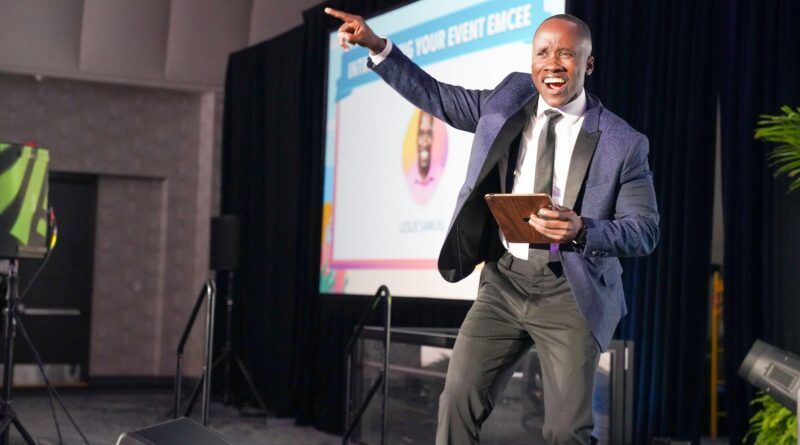Event Emcees vs. DJs: Understanding the Distinct Roles for Successful Events
Hosting a successful event involves careful planning and coordination of various elements, and two crucial roles that play a significant part in the overall success are event emcees and DJs. While both professionals contribute to the entertainment and engagement of the audience, they have distinct roles that are essential for creating a memorable experience. In this article, we will delve into the contrasting responsibilities and contributions of event emcees and DJs, shedding light on their unique roles in making events successful.
Event Emcees: The Masters of Ceremonies
An event emcee, also known as a master of ceremonies or MC, acts as the host and facilitator of the event. They serve as the face and voice of the event, responsible for guiding the audience throughout the proceedings. Here are some key aspects that define the role of event emcees:
- Engaging the Audience: An event emcee is responsible for capturing the attention of the audience and keeping them engaged throughout the event. They achieve this by employing effective communication skills, a captivating stage presence, and a keen sense of humor. Emcees often use their wit and charm to interact with the audience, making them feel involved and connected to the event.
- Introducing Speakers and Performers: One of the primary duties of an event emcee is introducing various speakers, performers, or presenters. They set the stage for each individual or group, providing a brief background and highlighting their achievements or expertise. Emcees ensure smooth transitions between different segments of the event, maintaining the flow and energy of the program.
- Providing Information and Updates: Emcees keep the audience informed about the schedule, upcoming activities, and any changes or updates regarding the event. They act as a point of reference for attendees, answering questions, and providing directions or instructions when necessary. Emcees may also share interesting anecdotes, trivia, or facts related to the event or its theme to enhance the overall experience.
- Creating a Positive Atmosphere: Event emcees are responsible for setting the tone and atmosphere of the event. They create a positive and inclusive environment by fostering a sense of enthusiasm, energy, and excitement among the audience. Emcees possess the ability to read the crowd and adapt their approach accordingly, ensuring that the event’s ambiance remains lively and engaging.
DJs: Masters of Music and Atmosphere
DJs, short for disc jockeys, are masters of music selection and manipulation, playing a pivotal role in creating a dynamic and vibrant atmosphere at events. Here’s an overview of their distinct responsibilities:
- Music Curation and Mixing: DJs are experts in selecting and mixing music to create the desired ambiance and atmosphere for the event. They consider the event’s theme, audience preferences, and the desired mood to curate playlists that resonate with the attendees. DJs possess extensive knowledge of various music genres, allowing them to adapt and cater to different tastes and preferences.
- Beatmatching and Transitions: One of the essential skills of a DJ is beatmatching, which involves seamlessly blending one song into another to maintain a continuous flow of music. They skillfully transition between tracks, ensuring a smooth and uninterrupted musical experience. DJs use their technical expertise and creativity to create a seamless integration of songs, building energy and momentum throughout the event.
- Enhancing Energy and Entertainment: DJs are responsible for reading the crowd and understanding their musical preferences. They adjust their song selection and mixing style to keep the energy levels high and the dance floor bustling. DJs also incorporate interactive elements such as remixes, mashups, and live sampling to add excitement and entertainment value to the event.
- Sound and Equipment Management: In addition to curating and mixing music, DJs are responsible for managing sound systems and equipment. They ensure optimal sound quality, adjusting volume levels, equalization, and other technical aspects to deliver a high-quality audio experience. DJs are familiar with the intricacies of audio equipment and troubleshoot any issues that may arise during the event.
Collaboration for Success
While event emcees and DJs have distinct roles, their collaboration is crucial for the success of an event. Together, they create a seamless experience, where the emcee’s engaging commentary and guidance are complemented by the DJ’s expertly curated music. By working in tandem, they enhance the overall atmosphere and entertainment factor, ensuring that attendees have a memorable and enjoyable time.
Conclusion
Event emcees and DJs are indispensable when it comes to hosting successful events. The event emcee serves as the face of the event, engaging the audience, introducing speakers, and creating a positive atmosphere. DJs, on the other hand, curate music, mix tracks, and create an energetic atmosphere, keeping the crowd entertained and engaged. Understanding the distinct roles of event emcees and DJs is essential for event organizers to create a memorable experience that leaves a lasting impression on attendees. By harnessing the strengths of both professionals, events can reach new heights of entertainment and engagement, setting the stage for an unforgettable experience.
